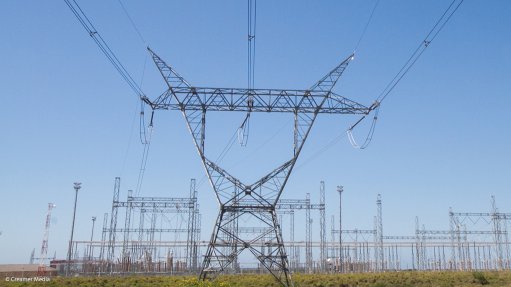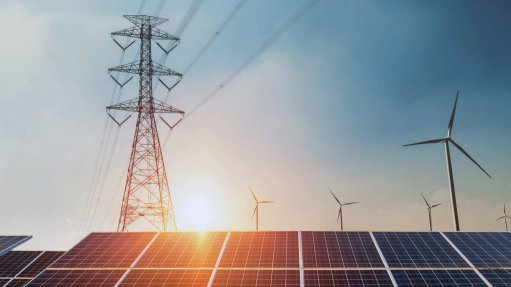Energy leadership programme trains women executive and managers to be energy leaders – EWSETA
More than a hundred women in leadership positions in the energy sector have graduated from the Women Leading in the Energy Sector (WLES) training programme, helping to bridge the gender gap in the sector and ensure a more equitable future, says the Energy and Water Sector Education and Training Authority (EWSETA).
The women leaders in the energy sector that participated include power station managers at State-owned Eskom plants, Eskom executive and management professionals, owners and leaders of small, medium-sized and microenterprises (SMMEs) and female educators at technical vocational education and training (TVET) colleges, says EWSETA CEO Mpho Mookapele.
During the nine-month course, participants developed and honed their leadership skills and gained immersive experience in Germany and the US. The initiative is a collaboration between EWSETA, Eskom and executive education organisation Duke Corporate Education.
The programme's curriculum emphasised personal leadership development, strategic operations, sustainable economics, work-life balance, advocacy and building supportive networks. The academic modules covered entrepreneurship, renewable-energy trends, sustainable solutions and policy.
“The WLES programme relies on local thinking, strategic collaboration to develop skills through experiential learning. These principles are critical in the energy transition where creative leadership and alignment with sustainability goals are essential to addressing local socioeconomic challenges and generating economic and social benefits,” she says.
The programme is in line with EWSETA’s commitment to developing human capital for the Just Energy Transition (JET) and promoting inclusive economic participation.
“By targeting SMMEs, which are a cornerstone of South Africa’s energy sector and crucial for future job creation, EWSETA ensures that small and medium-sized enterprises are well-equipped to contribute to the industry's growth,” Mookapele highlights.
The energy sector in South Africa continues to face a gender imbalance with women serving in a fraction of leadership roles. Programmes such as WLES are crucial in bridging this gap and ensuring a more equitable future, she notes.
“We already see the benefits of how the WLES programme has improved our women leaders' professional and personal lives,” says Eskom Group human resources interim executive Monde Bala.
“Eskom is committed to advancing the role of women within the organisation. By developing a pipeline of women leaders, we are securing a stronger, more inclusive future for generations to come,” he notes.
Similarly, Capricorn TVET College senior lecturer in civil engineering Praise Nyalungu says that, as the only female in her section and overseeing predominantly male subordinates and students, the leadership principles she gained from the programme were invaluable.
“The programme has equipped me to foster collaboration and pursue our common goals, regardless of gender,” she adds.
The collaboration as part of this programme nurtures a new generation of leaders who can navigate the complexities of the national energy landscape with innovation and a global perspective, Mookapele says.
“The programme has enriched these women leaders' perspectives and provided them with the tools to drive meaningful change within the vocational training system and South Africa’s energy sector. Their experiences have inspired and empowered them to be well-rounded leaders in their respective spaces, and this is a reflection of justice sought as part of the transition of the energy sector,” she states.
Article Enquiry
Email Article
Save Article
Feedback
To advertise email advertising@creamermedia.co.za or click here
Comments
Press Office
Announcements
What's On
Subscribe to improve your user experience...
Option 1 (equivalent of R125 a month):
Receive a weekly copy of Creamer Media's Engineering News & Mining Weekly magazine
(print copy for those in South Africa and e-magazine for those outside of South Africa)
Receive daily email newsletters
Access to full search results
Access archive of magazine back copies
Access to Projects in Progress
Access to ONE Research Report of your choice in PDF format
Option 2 (equivalent of R375 a month):
All benefits from Option 1
PLUS
Access to Creamer Media's Research Channel Africa for ALL Research Reports, in PDF format, on various industrial and mining sectors
including Electricity; Water; Energy Transition; Hydrogen; Roads, Rail and Ports; Coal; Gold; Platinum; Battery Metals; etc.
Already a subscriber?
Forgotten your password?
Receive weekly copy of Creamer Media's Engineering News & Mining Weekly magazine (print copy for those in South Africa and e-magazine for those outside of South Africa)
➕
Recieve daily email newsletters
➕
Access to full search results
➕
Access archive of magazine back copies
➕
Access to Projects in Progress
➕
Access to ONE Research Report of your choice in PDF format
RESEARCH CHANNEL AFRICA
R4500 (equivalent of R375 a month)
SUBSCRIBEAll benefits from Option 1
➕
Access to Creamer Media's Research Channel Africa for ALL Research Reports on various industrial and mining sectors, in PDF format, including on:
Electricity
➕
Water
➕
Energy Transition
➕
Hydrogen
➕
Roads, Rail and Ports
➕
Coal
➕
Gold
➕
Platinum
➕
Battery Metals
➕
etc.
Receive all benefits from Option 1 or Option 2 delivered to numerous people at your company
➕
Multiple User names and Passwords for simultaneous log-ins
➕
Intranet integration access to all in your organisation





















